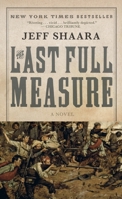You Might Also Enjoy
Book Overview
Customer Reviews
Rated 5 starsThe killer of Angels was the dark implication of the Battle of Gettysburg. This was a required read
The dehumanizing nature of war is perfectly captured by Michael Shaara’s book titled “The killer angles”. Stories of war about leaders and losses.
0Report
Rated 5 starsFocus too much on some but sheds light on the errors
This brilliant book explains clearly why Stuart, Ewell and Lee combined to lose Gettysburg and how Longstreet wanted desperately to override their mistakes Chamberlain over emphasized but he lived long enough to tell his story
1Report
Rated 5 starsMichael Shaara's Pulitzer Prize winning masterpiece
Originally published in 1974, Killer Angels, by Michael Shaara, won the Pulitzer Prize as historical fiction about the Battle of Gettysburg. About a quarter of a century later, and following his death, his son, Jeff, an accomplished writer in his own right, was convinced to write both a prequel (Gods and Generals) and a sequel (Last Full Measure) creating perhaps the greatest trilogy of the Civil War’s Eastern Theater in existence,...
2Report
Rated 5 starsThis is a very good book that covers the Battle of Gettysburg from start to finish. The battle was
0Report
Rated 5 starsThe Killer Angels
My sixteen year old son read this and was awed by the book. They read it aloud in JROTC.
8Report
























































